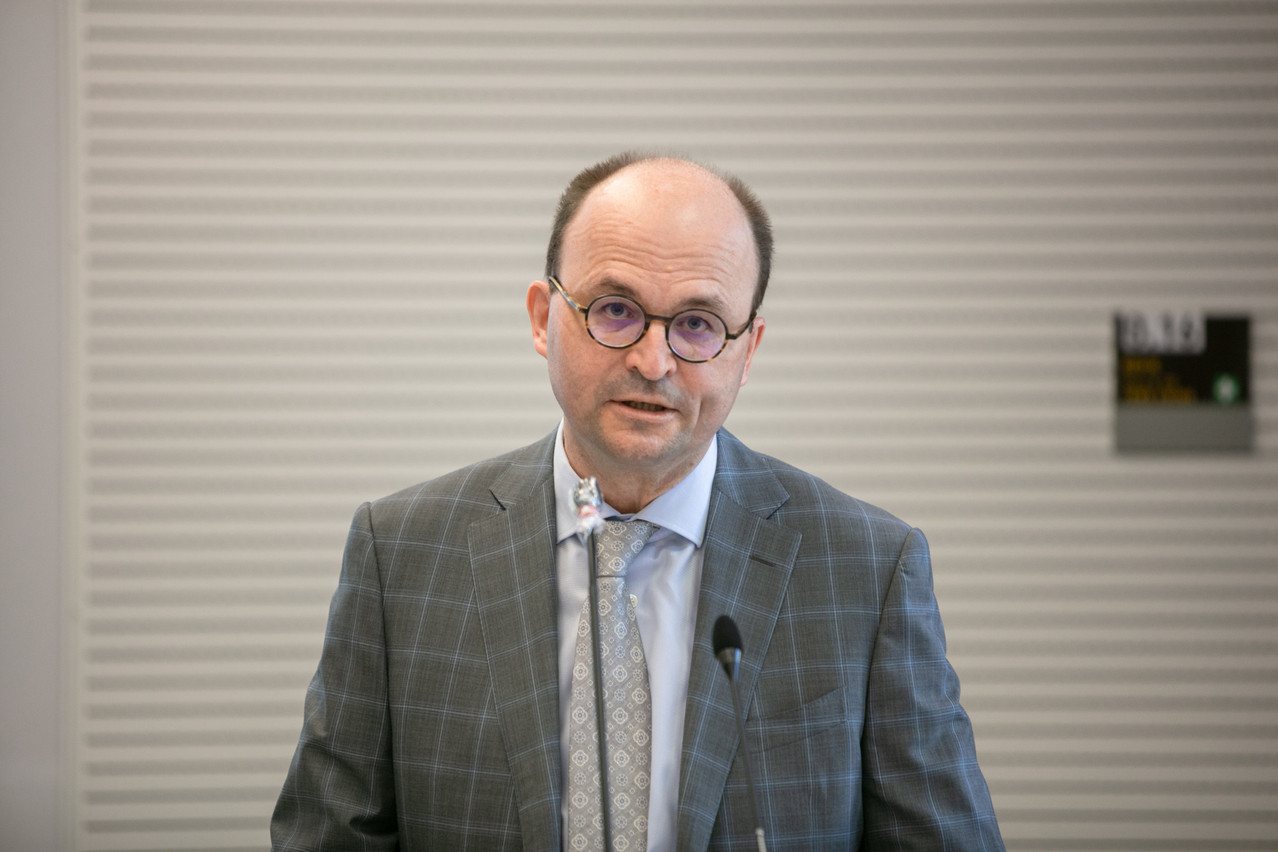In an opinion published on 15 November, the Chamber of Skilled Trades and Crafts (Chambre des métiers, CDM) broadly supports the government’s to combat the crises. Faced with what it calls a “polycrisis” or a “permacrisis,” notably because of the size and recurrence of public deficits over the past three years, it nevertheless has some reservations. The Chamber thus says “yes” to sustained investments and to the postponement of the major tax reform, but “no” to the probable if companies alone have to bear it financially.
Finally, it proposes concrete measures to boost the decarbonisation of companies--measures that go further than what the state has budgeted--while warning that financial reserves must be built up. It’s a “perilous balancing act,” as the title of its public opinion underlines, which in some respects also looks like the start of an election campaign.
Read also
A perilous balancing act
The CDM agrees that the government has no choice but to use more debt to finance exceptional support measures. Managing director said “the management of this budget is a tightrope walk... for both government and business. The amounts that have been set aside in the budget are substantial. But for us, exceeding 30% of debt would be to open a Pandora’s box. Households have been heard. Businesses have been heard less, but the measures exist and we recognise that.”
However, in its opinion, the CDM is more circumspect about the state of public finances which, according to it, are “on a worrying trajectory.” In particular, it criticises the state for not taking care of the decline in social security revenues, in what it describes as “an unsustainable system in the long term.”
No major tax reform financed by debt
While households were heard at the end of the tripartite, the CDM states in its opinion that the real impact of measures taken to mitigate inflation “remains uncertain.” In this context, would not be topical according to the CDM, as it would lead to a loss of tax revenue at a time when the state needs to build up reserves. In this sense, it agrees with the government’s view that such a reform should be postponed, but describes possible additional tax relief for companies as “vague.”
For us, exceeding 30% of debt would be to open a Pandora’s box.
Amending the additional cost of a third index bracket
For the CDM, the government did not anticipate the end of the crisis and should have made provisions earlier to support possible additional expenditure in 2023. By additional expenditure, the Chamber specifically points to the likely third indexation in 2023. On this point, it asks the state to provide for financial compensation to companies, via government amendments, in the bill, in the event that a third indexation does take place.
In order to curb the evolution of public expenditure, it also proposes to rethink the system of free social services and to move towards more digitalisation, otherwise we will end up with an “all-risk insurance mentality” that would encourage “assistance.” Replacing free services with tax breaks would be one way forward.
More support for business competitiveness
In its role as an employers’ chamber, the CDM does not lose sight of the fact that companies that have already committed themselves to decarbonisation should be given more support, particularly with regard to energy efficiency. It is calling for “an attractive aid scheme and tax framework” to promote investments in this direction, particularly with regard to renewable energies or the installation of charging points for electric vehicles along the borders.
In the craft sector, competitiveness depends on apprenticeships. The CDM proposes the creation of a public fund, in particular to finance the allowances currently paid by companies. Finally, it proposes to think about a real “national skills strategy” to alleviate the recruitment problems in the craft industry.
Campaigning premise?
During the presentation of its opinion, the Chamber of Crafts and Skilled Trades set out a number of proposals which, in its view, would help to overcome the crisis and “shape the society of tomorrow.” This already sounds like a tune played as a prelude to the forthcoming election campaign. Indeed, Wirion did not deny it: “We have just sent 30 proposals in seven key areas to the political parties to provide food for thought... The points discussed today are also about the future, particularly those on energy transition and skills, and our proposals have a budgetary impact. Our proposals go beyond the crisis, and some ideas, such as the creation of a fund to finance costs or bonuses for apprentices, do not exist today.”
This story was first published in French on . It has been translated and edited for Delano.

